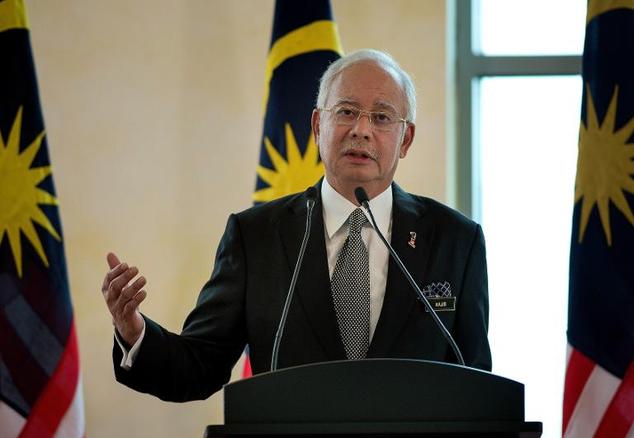
403
Sorry!!
Error! We're sorry, but the page you were looking for doesn't exist.
Malaysia PM under fire
(MENAFN- The Peninsula) Malaysia's parliament Friday approved tougher penalties for sedition in a move criticised by the United Nations and described by the opposition as "a black day" for democracy and free expression.
Prime Minister Najib Razak defended the amendments - which extend the maximum jail term to 20 years from three years and establish a minimum three-year jail term for certain cases - as essential to maintaining stability.
But rights groups said the revised act could be used to censor the Internet by making it illegal to propagate sedition online, and the hazy definition of "sedition" remains open to abuse by the government.
UN High Commissioner for Human Rights Zeid Ra'ad Al Hussein called Thursday for the law to be repealed, saying that "it is very disappointing that the Malaysian government is now proposing to make a bad law worse".
Malaysia's ruling coalition had already sparked outcry on Tuesday when it passed an anti-terrorism law that allows authorities to detain people indefinitely without charge.
The changes come as Najib is facing mounting calls for him to step down after a slew of corruption scandals and a crackdown on civil liberties since the ruling government saw voter support slide in Malaysia's last election.
Opponents of the Muslim-controlled government say it is increasingly falling back on "protecting Islam" as an argument to curb speech by members of the religiously diverse opposition.
"This is a black day for democracy in Malaysia. There is no freedom of speech under this abusive law," opposition lawmaker N. Surendran said.
Besides the blitz of sedition charges against its critics, the government in February jailed opposition leader Anwar Ibrahim for five years on a sodomy conviction he says was fabricated in a bid to silence him.
- PM defends himself -
Najib promised in 2011 to create "the greatest democracy" and launched tentative political liberalisation moves, but has done an about-face since his party suffered its worst result in almost 60 years in subsequent elections.
Before the 2013 poll he had promised to scrap the Sedition Act - viewed as a relic of the British colonial era and a tool to gag free speech - but has since announced the law would be retained and "strengthened".
Dozens of government critics, including opposition politicians, academics, activists and journalists, have been hit with sedition or other charges in what political analysts view as a campaign to pressure and harass opponents.
Najib defended the revisions and the new anti-terror law in an interview on state-controlled television broadcast late Thursday, insisting they will not be used against government critics.
Prime Minister Najib Razak defended the amendments - which extend the maximum jail term to 20 years from three years and establish a minimum three-year jail term for certain cases - as essential to maintaining stability.
But rights groups said the revised act could be used to censor the Internet by making it illegal to propagate sedition online, and the hazy definition of "sedition" remains open to abuse by the government.
UN High Commissioner for Human Rights Zeid Ra'ad Al Hussein called Thursday for the law to be repealed, saying that "it is very disappointing that the Malaysian government is now proposing to make a bad law worse".
Malaysia's ruling coalition had already sparked outcry on Tuesday when it passed an anti-terrorism law that allows authorities to detain people indefinitely without charge.
The changes come as Najib is facing mounting calls for him to step down after a slew of corruption scandals and a crackdown on civil liberties since the ruling government saw voter support slide in Malaysia's last election.
Opponents of the Muslim-controlled government say it is increasingly falling back on "protecting Islam" as an argument to curb speech by members of the religiously diverse opposition.
"This is a black day for democracy in Malaysia. There is no freedom of speech under this abusive law," opposition lawmaker N. Surendran said.
Besides the blitz of sedition charges against its critics, the government in February jailed opposition leader Anwar Ibrahim for five years on a sodomy conviction he says was fabricated in a bid to silence him.
- PM defends himself -
Najib promised in 2011 to create "the greatest democracy" and launched tentative political liberalisation moves, but has done an about-face since his party suffered its worst result in almost 60 years in subsequent elections.
Before the 2013 poll he had promised to scrap the Sedition Act - viewed as a relic of the British colonial era and a tool to gag free speech - but has since announced the law would be retained and "strengthened".
Dozens of government critics, including opposition politicians, academics, activists and journalists, have been hit with sedition or other charges in what political analysts view as a campaign to pressure and harass opponents.
Najib defended the revisions and the new anti-terror law in an interview on state-controlled television broadcast late Thursday, insisting they will not be used against government critics.

Legal Disclaimer:
MENAFN provides the
information “as is” without warranty of any kind. We do not accept
any responsibility or liability for the accuracy, content, images,
videos, licenses, completeness, legality, or reliability of the information
contained in this article. If you have any complaints or copyright
issues related to this article, kindly contact the provider above.














Comments
No comment